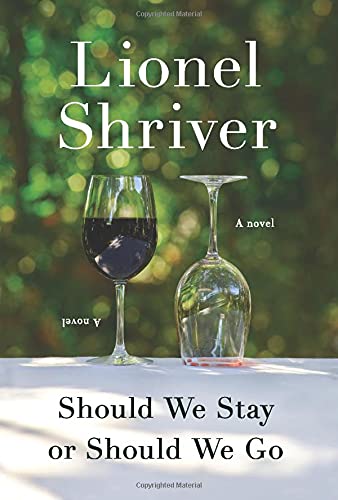I've been meaning to post this essay for a while. In the September issue of Cookie magazine, four women wrote about how they chose how many children to have. One of the contributors was Lionel Shriver, author of The Post-Birthday World, which was the choice for one of EDIWTB's online book clubs. (Lionel Shriver also answered questions on this blog here.)
You can read all of the essays here, but I want to post Lionel Shriver's essay about having no children. I haven't yet read We Need To Talk About Kevin, though I understand that it is about one woman's disastrous experience with motherhood. But I find her to be so interesting that I was glad to read this essay. Enjoy.
ZERO
By Lionel Shriver
Hot flashes every five minutes are a reminder, in my 51st year, that my decision to forgo procreation has slipped to the past perfect. I'm no longer choosing not to have children; I did not have them. Surely any reputable female could scrounge up a trace of wistfulness on this point. But I cannot bestir in myself an iota of regret. I first swore off a family at the age of 8—maybe I couldn't bear the notion of being saddled with a little girl just like me who was forever flying into tantrums—and I never looked back.
Self-satisfaction is always obnoxious. So I won't pretend that my daily routine sends me into an unremitting swoon. My work life is as plodding as most writers'; barring my marriage, my most intimate relationship is with a frequently malfunctioning computer. While I have enjoyed an extraordinary freedom, I seldom fully avail myself of its pleasures. Not once have my husband and I spontaneously whipped off for a weekend in Paris, though the city is just a hop across the channel from our London flat.
Nevertheless, I have relished my solitude. I can barely stand having even one other human being underfoot, and I prefer the kind that has already mastered the alphabet. I like my dumpy work life, and I suspect that you can measure the cost of raising children not only in dollars but also in the number of books you did not write. I would never equate literary and literal progeny; people are more important. But you cannot shut the lid on a baby for the night, or rewrite the scene of your evening so that the infant goes straight to sleep, or skip the ages 7 to 14 between chapters to pick up the pace. Children are a great deal more trouble than books.
Sounds selfish? Of course it's selfish. I'm a big believer in healthy selfishness. Parents are certain to do a better job if they're raising kids because they want to. Though the role may entail sacrifice, well-adjusted parents do not subject themselves to children like hair shirts. They may be in for some disagreeable surprises, but prospective parents must be better off planning to raise a family for their own pleasure and enrichment. I would hate to learn that my parents brought me into the world solely out of a sense of duty.
Advocating "healthy selfishness" is as close as I come to elevating a private decision to a political position. I'm as happy for other people to have kids as I am to have personally given the urchins a miss. I don't go on the stump and rail that pregnancy is servitude, and that all self-respecting women should cease to reproduce. Yet you would think I had done just that. Since publishing We Need To Talk About Kevin—a novel about a woman whose experience of motherhood goes, to err on the side of understatement, rather badly—I have been endlessly solicited to appear in the media as a champion of the childless. Or, as a recent nonparents'-advocacy book prefers, the "childfree," as in Childfree and Loving It!.
It is an uncomfortable role, tantamount to being anti-people. And it's not clear to me why the "childfree" would require a champion. After all, these days, demographically, we are legion. Electing to do without children no longer counts as eccentric and has ceased to confer an appreciable social stigma. So why would this contingent of the willingly unreproductive ever need to advance our blissfully independent, we-can-go-to-France-if-we-want-to liberation as a full-blown cause?
My theory? Insecurity. Because most people have imaginations and cannot quite let go of the might-have-been. However resolute, many nonparents must still suffer existential angst, and entertain for a second or two the thought that bearing children might be essential to a fully meaningful life. In short, because that perfect dearth of regret that I described at the outset is surprisingly rare.











About Me
I have been blogging about books here at Everyday I Write the Book since 2006. I love to read, and I love to talk about books and what other people are reading.